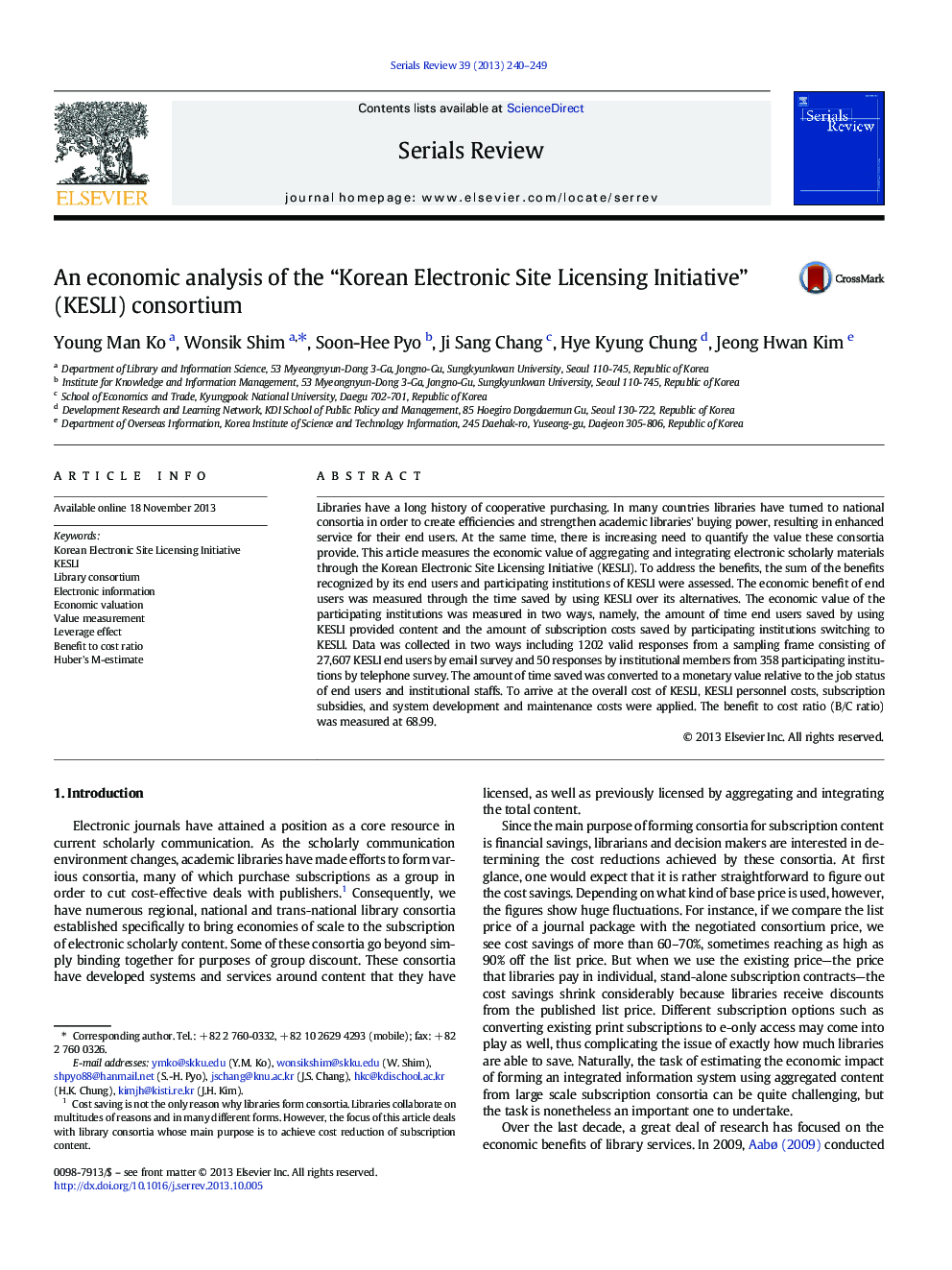| Article ID | Journal | Published Year | Pages | File Type |
|---|---|---|---|---|
| 1099839 | Serials Review | 2013 | 10 Pages |
Abstract
Libraries have a long history of cooperative purchasing. In many countries libraries have turned to national consortia in order to create efficiencies and strengthen academic libraries' buying power, resulting in enhanced service for their end users. At the same time, there is increasing need to quantify the value these consortia provide. This article measures the economic value of aggregating and integrating electronic scholarly materials through the Korean Electronic Site Licensing Initiative (KESLI). To address the benefits, the sum of the benefits recognized by its end users and participating institutions of KESLI were assessed. The economic benefit of end users was measured through the time saved by using KESLI over its alternatives. The economic value of the participating institutions was measured in two ways, namely, the amount of time end users saved by using KESLI provided content and the amount of subscription costs saved by participating institutions switching to KESLI. Data was collected in two ways including 1202 valid responses from a sampling frame consisting of 27,607 KESLI end users by email survey and 50 responses by institutional members from 358 participating institutions by telephone survey. The amount of time saved was converted to a monetary value relative to the job status of end users and institutional staffs. To arrive at the overall cost of KESLI, KESLI personnel costs, subscription subsidies, and system development and maintenance costs were applied. The benefit to cost ratio (B/C ratio) was measured at 68.99.
Related Topics
Social Sciences and Humanities
Social Sciences
Library and Information Sciences
Authors
Young Man Ko, Wonsik Shim, Soon-Hee Pyo, Ji Sang Chang, Hye Kyung Chung, Jeong Hwan Kim,
